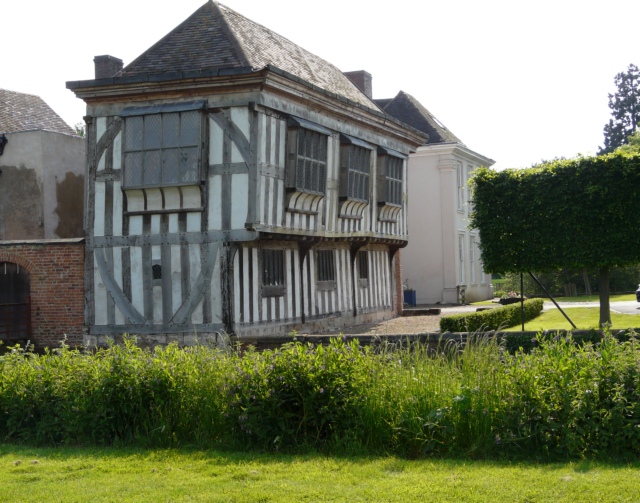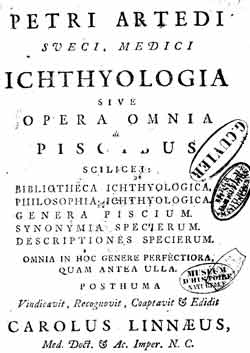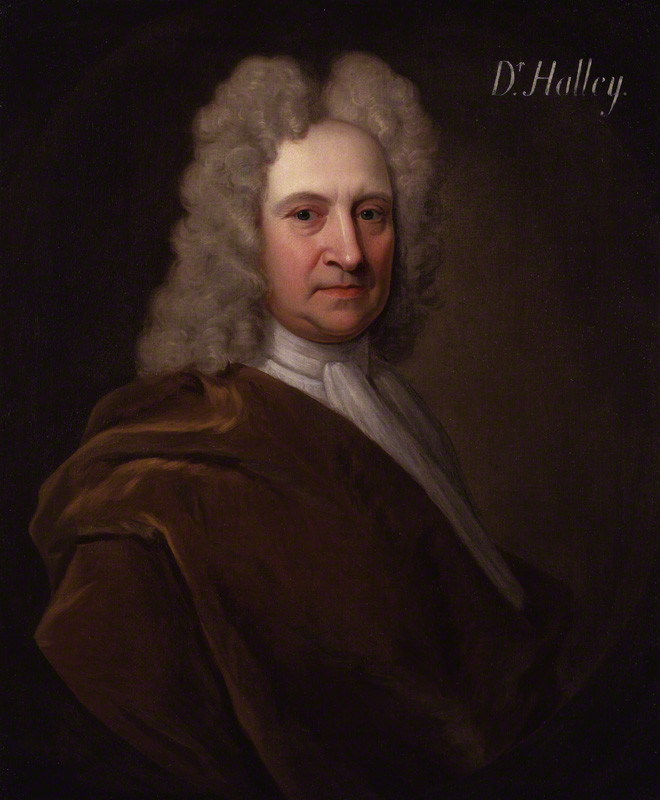|
De Historia Piscium
''De Historia Piscium'' (Latin for 'Of the History of Fish') is a scientific book written by Francis Willughby and John Ray and published by the Royal Society in 1686. The book was the first illustrated work on ichthyology to be published in England. Creation Francis Willughby began work on ''De Historia Piscium'' in 1663. Willughby and Ray travelled together on a tour of Europe to study the natural world prior to the beginning of the production of the book. The book was completed by John Ray after Willughby's death in 1672. Ray's motivations have been linked to the wider aims of the Royal Society, namely to recover knowledge lost after the Fall of the Western Roman Empire. Content Willughby, and later Ray, produced a system within ''De Historia Piscium'' which would allow for the definition, classification, and identification of fish using external features. One of the main features of the book was its extensive illustrations, financed by subscriptions to the Society, but s ... [...More Info...] [...Related Items...] OR: [Wikipedia] [Google] [Baidu] |
Latin
Latin ( or ) is a classical language belonging to the Italic languages, Italic branch of the Indo-European languages. Latin was originally spoken by the Latins (Italic tribe), Latins in Latium (now known as Lazio), the lower Tiber area around Rome, Italy. Through the expansion of the Roman Republic, it became the dominant language in the Italian Peninsula and subsequently throughout the Roman Empire. It has greatly influenced many languages, Latin influence in English, including English, having contributed List of Latin words with English derivatives, many words to the English lexicon, particularly after the Christianity in Anglo-Saxon England, Christianization of the Anglo-Saxons and the Norman Conquest. Latin Root (linguistics), roots appear frequently in the technical vocabulary used by fields such as theology, List of Latin and Greek words commonly used in systematic names, the sciences, List of medical roots, suffixes and prefixes, medicine, and List of Latin legal terms ... [...More Info...] [...Related Items...] OR: [Wikipedia] [Google] [Baidu] |
Francis Willughby
Francis Willughby (sometimes spelt Willoughby, ) Fellow of the Royal Society, FRS (22 November 1635 – 3 July 1672) was an English ornithology, ornithologist, ichthyology, ichthyologist and mathematician, and an early student of linguistics and game studies, games. He was born and raised at Middleton Hall, Warwickshire, the only son of an affluent country family. He was a student at Trinity College, Cambridge, where he was tutored by the mathematician and naturalist John Ray, who became a lifetime friend and colleague, and lived with Willughby after 1662 when Ray lost his livelihood through his refusal to sign the Act of Uniformity 1662, Act of Uniformity. Willughby was elected as a Fellow of the Royal Society in 1661, then aged 27. Willughby, Ray, and others such as John Wilkins were advocates of a new way of studying science, relying on observation and classification, rather than the received authority of Aristotle and the Bible. To this end, Willughby, Ray and their friends ... [...More Info...] [...Related Items...] OR: [Wikipedia] [Google] [Baidu] |
John Ray
John Ray Fellow of the Royal Society, FRS (November 29, 1627 – January 17, 1705) was a Christian England, English Natural history, naturalist widely regarded as one of the earliest of the English parson-naturalists. Until 1670, he wrote his name as John Wray. From then on, he used 'Ray', after "having ascertained that such had been the practice of his family before him". He published important works on botany, zoology, and natural theology. His classification of plants in his ''Historia Plantarum (Ray book), Historia Plantarum'', was an important step towards modern Taxonomy (biology), taxonomy. Ray rejected the system of dichotomy, dichotomous division by which species were classified by repeated sub-division into groups according to a pre-conceived series of characteristics they have or have not, and instead classified plants according to similarities and differences that emerged from observation. He was among the first to attempt a biological definition for the concept of ' ... [...More Info...] [...Related Items...] OR: [Wikipedia] [Google] [Baidu] |
Royal Society
The Royal Society, formally The Royal Society of London for Improving Natural Knowledge, is a learned society and the United Kingdom's national academy of sciences. The society fulfils a number of roles: promoting science and its benefits, recognising excellence in science, supporting outstanding science, providing scientific advice for policy, education and public engagement and fostering international and global co-operation. Founded on 28 November 1660, it was granted a royal charter by Charles II of England, King Charles II and is the oldest continuously existing scientific academy in the world. The society is governed by its Council, which is chaired by the society's president, according to a set of statutes and standing orders. The members of Council and the president are elected from and by its Fellows, the basic members of the society, who are themselves elected by existing Fellows. , there are about 1,700 fellows, allowed to use the postnominal title FRS (Fellow ... [...More Info...] [...Related Items...] OR: [Wikipedia] [Google] [Baidu] |
Ichthyology
Ichthyology is the branch of zoology devoted to the study of fish, including bony fish (Osteichthyes), cartilaginous fish (Chondrichthyes), and jawless fish (Agnatha). According to FishBase, 35,800 species of fish had been described as of March 2025, with approximately 250 new species described each year. Etymology The word is derived from the Ancient Greek words ἰχθύς, ''ikhthus'', meaning "fish"; and λόγος, ''logos'', meaning "study". History The study of fish dates from the Upper Paleolithic Revolution (with the advent of "high culture"). The science of ichthyology was developed in several interconnecting epochs, each with various significant advancements. The study of fish receives its origins from humans' desire to feed, clothe, and equip themselves with useful implements. According to Michael Barton, a prominent ichthyologist and professor at Centre College, "the earliest ichthyologists were hunters and gatherers who had learned how to obtain the most use ... [...More Info...] [...Related Items...] OR: [Wikipedia] [Google] [Baidu] |
Fall Of The Western Roman Empire
The fall of the Western Roman Empire, also called the fall of the Roman Empire or the fall of Rome, was the loss of central political control in the Western Roman Empire, a process in which the Empire failed to enforce its rule, and its vast territory was divided among several successor polities. The Roman Empire lost the strengths that had allowed it to exercise effective control over its Western provinces; modern historians posit factors including the effectiveness and numbers of the army, the health and numbers of the Roman population, the strength of the economy, the competence of the emperors, the internal struggles for power, the religious changes of the period, and the efficiency of the civil administration. Increasing pressure from invading peoples outside Roman culture also contributed greatly to the collapse. Climatic changes and both endemic and epidemic disease drove many of these immediate factors. The reasons for the collapse are major subjects of the hi ... [...More Info...] [...Related Items...] OR: [Wikipedia] [Google] [Baidu] |
Isaac Newton
Sir Isaac Newton () was an English polymath active as a mathematician, physicist, astronomer, alchemist, theologian, and author. Newton was a key figure in the Scientific Revolution and the Age of Enlightenment, Enlightenment that followed. His book (''Mathematical Principles of Natural Philosophy''), first published in 1687, achieved the Unification of theories in physics#Unification of gravity and astronomy, first great unification in physics and established classical mechanics. Newton also made seminal contributions to optics, and Leibniz–Newton calculus controversy, shares credit with German mathematician Gottfried Wilhelm Leibniz for formulating calculus, infinitesimal calculus, though he developed calculus years before Leibniz. Newton contributed to and refined the scientific method, and his work is considered the most influential in bringing forth modern science. In the , Newton formulated the Newton's laws of motion, laws of motion and Newton's law of universal g ... [...More Info...] [...Related Items...] OR: [Wikipedia] [Google] [Baidu] |
Philosophiae Naturalis Principia Mathematica
Philosophy ('love of wisdom' in Ancient Greek) is a systematic study of general and fundamental questions concerning topics like existence, reason, knowledge, value, mind, and language. It is a rational and critical inquiry that reflects on its methods and assumptions. Historically, many of the individual sciences, such as physics and psychology, formed part of philosophy. However, they are considered separate academic disciplines in the modern sense of the term. Influential traditions in the history of philosophy include Western, Arabic–Persian, Indian, and Chinese philosophy. Western philosophy originated in Ancient Greece and covers a wide area of philosophical subfields. A central topic in Arabic–Persian philosophy is the relation between reason and revelation. Indian philosophy combines the spiritual problem of how to reach enlightenment with the exploration of the nature of reality and the ways of arriving at knowledge. Chinese philosophy focuses principally on ... [...More Info...] [...Related Items...] OR: [Wikipedia] [Google] [Baidu] |
Edmond Halley
Edmond (or Edmund) Halley (; – ) was an English astronomer, mathematician and physicist. He was the second Astronomer Royal in Britain, succeeding John Flamsteed in 1720. From an observatory he constructed on Saint Helena in 1676–77, Halley catalogued the southern celestial hemisphere and recorded a transit of Mercury across the Sun. He realised that a similar transit of Venus could be used to determine the distances between Earth, Venus, and the Sun. Upon his return to England, he was made a fellow of the Royal Society, and with the help of King Charles II of England, Charles II, was granted a master's degree from University of Oxford, Oxford. Halley encouraged and helped fund the publication of Isaac Newton's influential ''Philosophiæ Naturalis Principia Mathematica'' (1687). From observations Halley made in September 1682, he used Newton's law of universal gravitation to compute the periodicity of Halley's Comet in his 1705 ''Synopsis of the Astronomy of Comets''. It ... [...More Info...] [...Related Items...] OR: [Wikipedia] [Google] [Baidu] |
1686 Non-fiction Books
Events January–March * January 3 – In Madras (now Chennai) in India, local residents employed by the East India Company threaten to boycott their jobs after corporate administrator William Gyfford imposes a house tax on residences within the city walls. Gyfford places security forces at all entrances to the city and threatens to banish anyone who fails to pay their taxes, as well as to confiscate the goods of merchants who refuse to make sales. A compromise is reached the next day on the amount of the taxes. * January 17 – King Louis XIV of France reports the success of the Edict of Fontainebleau, issued on October 22 against the Protestant Huguenots, and reports that after less than three months, the vast majority of the Huguenot population had left the country. * January 29 – In Guatemala, Spanish Army Captain Melchor Rodríguez Mazariegos leads a campaign to conquer the indigenous Maya people in the rain forests of Lacandona, departing from ... [...More Info...] [...Related Items...] OR: [Wikipedia] [Google] [Baidu] |
1686 In Science
The year 1686 in science and technology involved some significant events. Astronomy * Gottfried Kirch notices that Chi Cygni's brightness varies. Biology * John Ray begins publication of his '' Historia Plantarum'', including the first biological definition of the term ''species''; also his edition of Francis Willughby's ''Historia Piscum''. Geology * Edmund Halley establishes the relationship between barometric pressure and height above sea level. Meteorology * Edmund Halley presents a systematic study of the trade winds and monsoons and identifies solar heating as the cause of atmospheric motions. Physics * Isaac Newton uses a fixed length pendulum with weights of varying composition to test the weak equivalence principle to 1 part in 1000. Births * February 10 – Jan Frederik Gronovius, Dutch botanist (died 1762) * May 24 – Gabriel Fahrenheit, physicist and inventor (died 1736) * July 6 – Antoine de Jussieu, French naturalist (died 1758) * October (''possible dat ... [...More Info...] [...Related Items...] OR: [Wikipedia] [Google] [Baidu] |
1686 In England
Events from the year 1686 in Kingdom of England, England. Incumbents * English monarch, Monarch – James II of England, James II Events * 21 June – judgement in the case of ''Godden v. Hales'' affirms the king's power to exercise his Royal prerogative, dispensing powers granting exemptions from anti-Catholic legislation. Heneage Finch, 1st Earl of Aylesford, Heneage Finch is dismissed as Solicitor General for England and Wales, Solicitor General for his refusal to defend the king's case. * 10 July – Court of Ecclesiastical Commission created. * 17 July – King James appoints four Catholics to the Privy Council of England. * 5 November – Bar Convent in York established, making it the oldest surviving active Catholic convent in England. Undated * A group of Conspiracy (political), conspirators meet at Charborough House in Dorset to plan the overthrow of James II of England, James II by Roundhead, Parliamentarians and the Netherlands, Dutch Stadtholder William III of Englan ... [...More Info...] [...Related Items...] OR: [Wikipedia] [Google] [Baidu] |









